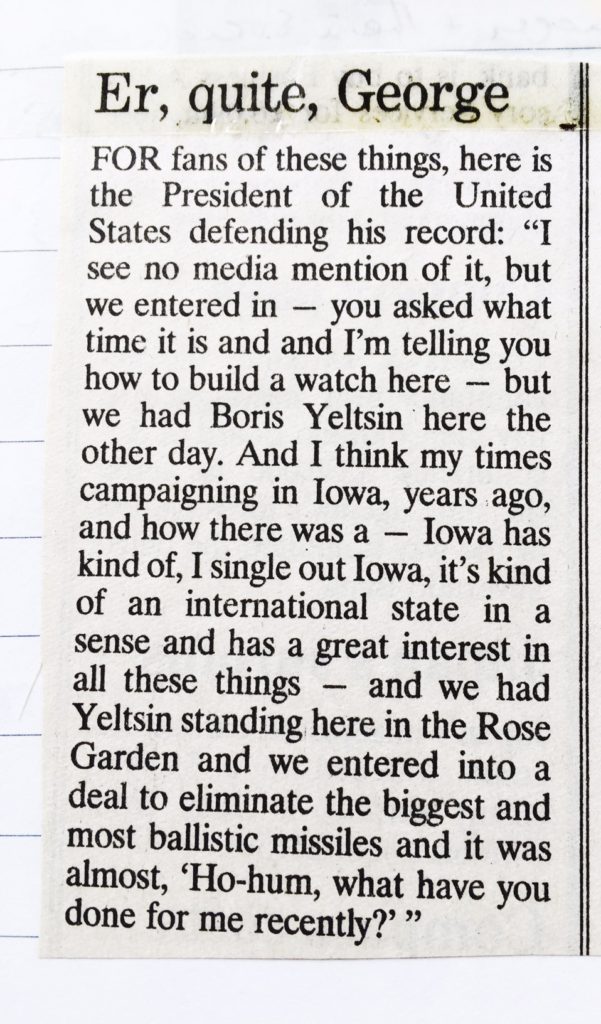Nice Guardian column by Aditya Chakrabortty about the Tories’s political confusion. I particularly like this passage:
The problem with this cabinet is not that they lack ideas for Brexit Britain: not at all. It’s rather that they’ve got too many and most haven’t been baked for long enough. Consider cabinet minister Andrea Leadsom’s demand that Britons take up fruit-picking – while her colleague Jeremy Hunt urges them to train as doctors. Consider the Tories’ various barmy import-substitution plans, such as Liz Truss’s plaintive cry a couple of years ago that Britain imports two-thirds of its cheese and “That. Is. A. Disgrace”. Down one side of the cabinet, free-trade buccaneering; down the other, economic autarky on all dairy products. And on both sides, a preference for factoids over evidence and for blue-sky thinking over anything remotely serious.
Well, well. Fans of P.G. Wodehouse will recognise here some echoes of Roderick Spode, the Amateur Dictator and Leader of the Blackshorts. Spode’s economic policies, for example, included giving each citizen at birth a British–made bicycle and umbrella; banning the import of foreign root-vegetables; compulsory scientific measurement of all male knees; and stipulating that each English county should specialise in its manufacturing industry. Warwickshire, for instance, would specialise in the manufacture of umbrellas. Oh — and the national rail gauge should be widened, so that sheep could stand sideways in railway trucks.
Theresa May’s merrie band are not quite at Spode’s level yet, but they’re getting there.



